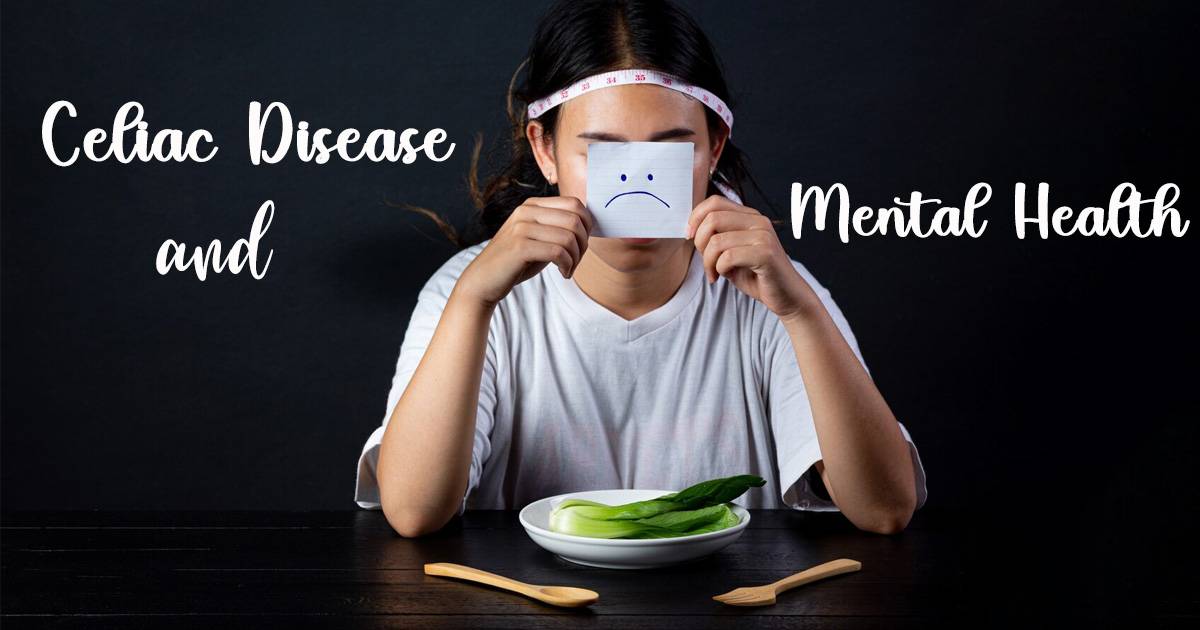Celiac Disease and Mental Health: Anxiety, Depression, & Behavioral Changes

Stress doesn’t just affect how we feel emotionally—it can take a toll on our physical health too. Studies show that stress can make many health problems worse, like heart disease and issues with the immune system. One study in The American Journal of Psychiatry found that stress and emotional ups and downs can even worsen autoimmune conditions like celiac disease.
When gluten triggers a negative immune response, the body develops celiac disease. For people with this condition, stress, anxiety, and depression can make their symptoms worse. This isn’t just a problem for adults—it can deeply affect children too. When children with celiac deal with both physical pain and emotional stress, it can lead to behavioral problems.
Understanding Celiac Disease in Children
Celiac disease is an autoimmune condition where the body’s immune system reacts badly to gluten, a protein found in foods like wheat, barley, and rye. When someone with celiac eats gluten, it damages the small intestine, leading to problems like stomach pain and difficulty absorbing vitamins and nutrients. For kids, this can be especially harmful because it affects their growth and overall health.
Celiac disease doesn’t just cause stomach issues. Children with celiac may often feel tired, have frequent tummy aches, or struggle to gain weight. It can also affect their emotions and behavior. A child with celiac might feel nervous, sad, or frustrated without knowing why. This can make it harder for them to focus in school, play with friends, or enjoy daily activities.
Symptoms of Celiac Disease in Children
Physical Symptoms
- Frequent diarrhea or constipation
- Stomach pain or bloating
- Vomiting
- Feeling very tired
- Slow growth or delayed puberty
- Weak bones or trouble growing stronger
Behavioral Symptoms
- Feeling irritable or upset more often
- Trouble focusing or paying attention
- Struggling in school
- Avoiding friends or social activities
Mental Symptoms
- Feeling anxious or worried a lot
- Sudden mood changes
- Feeling sad or depressed
Since celiac disease can show up in many different ways, it’s sometimes mistaken for other illnesses. That’s why it’s important to get diagnosed as early as possible.
Diagnosing and Managing Celiac Disease and Mental Health
Finding out if someone has celiac disease is very important in helping them feel better. Diagnosing it can be tricky because its symptoms can look like other health problems. Doctors usually start with a blood test to check for signs of celiac disease. Sometimes, they might also need to take a small sample of tissue from the small intestine to confirm it. It’s also helpful to look at other factors, like family history or related health issues, to fully understand what’s going on. This helps in creating the best treatment plan.
Treating Physical Symptoms
The main way to manage celiac disease is by eating a gluten-free diet. This means not eating anything that has wheat, barley, rye, or foods that may have come in contact with gluten. When children stop eating gluten, their small intestine has a chance to heal, and many of their stomach problems improve. While switching to this diet can be tough at first, it helps kids feel stronger, more energetic, and healthier as they grow.
Doctors may also suggest giving children vitamins or supplements to fix issues caused by not getting enough nutrients, like weak bones or low iron. Checking in regularly with a doctor ensures they keep getting better and growing properly.
Managing Mental Symptoms
Celiac disease can also make kids feel worried, sad, or moody. These feelings might be worse if their illness wasn’t diagnosed right away. Talking to a counselor or therapist can help them handle these emotions and feel more confident. Doing things they enjoy, like playing or spending time with friends, can also lift their mood.
Parents play a big role too. They can give their children a sense of care by demonstrating patience and support. Teaching kids what foods are gluten-free and letting them help with choosing meals can give them a sense of control. It’s also important to share information about celiac with teachers and caregivers so they can keep the child safe and provide support at school or during activities.
Helping Kids with Celiac Disease Thrive
Children with celiac disease need more than just a special diet—they need support and understanding too. Emotional stress can be especially hard for kids who are still growing and learning. That’s why it’s so important to create a positive environment where they feel safe, loved, and cared for. Encouragement and patience from family, friends, and caregivers can make a big difference in helping them handle the challenges of living with celiac disease.
A gluten-free diet is the first step in helping their bodies heal, but emotional support and proper medical care are just as important to their overall well-being. Together, these steps not only help kids feel better physically but also boost their confidence and happiness.
With the right care and support, children with celiac disease can do more than cope—they can thrive. They can grow up healthy, happy, and ready to take on whatever life brings. We can provide them with the means to create a happy and prosperous future by concentrating on their bodies as well as their minds. Let’s work to make their lives full of optimism and opportunities!
